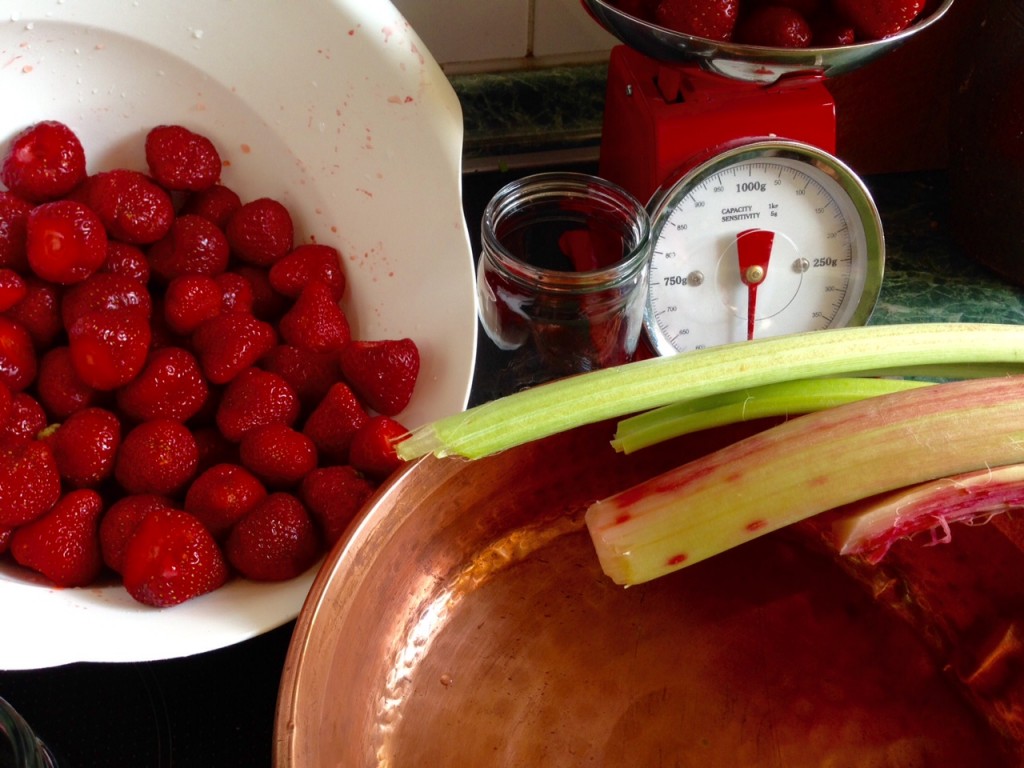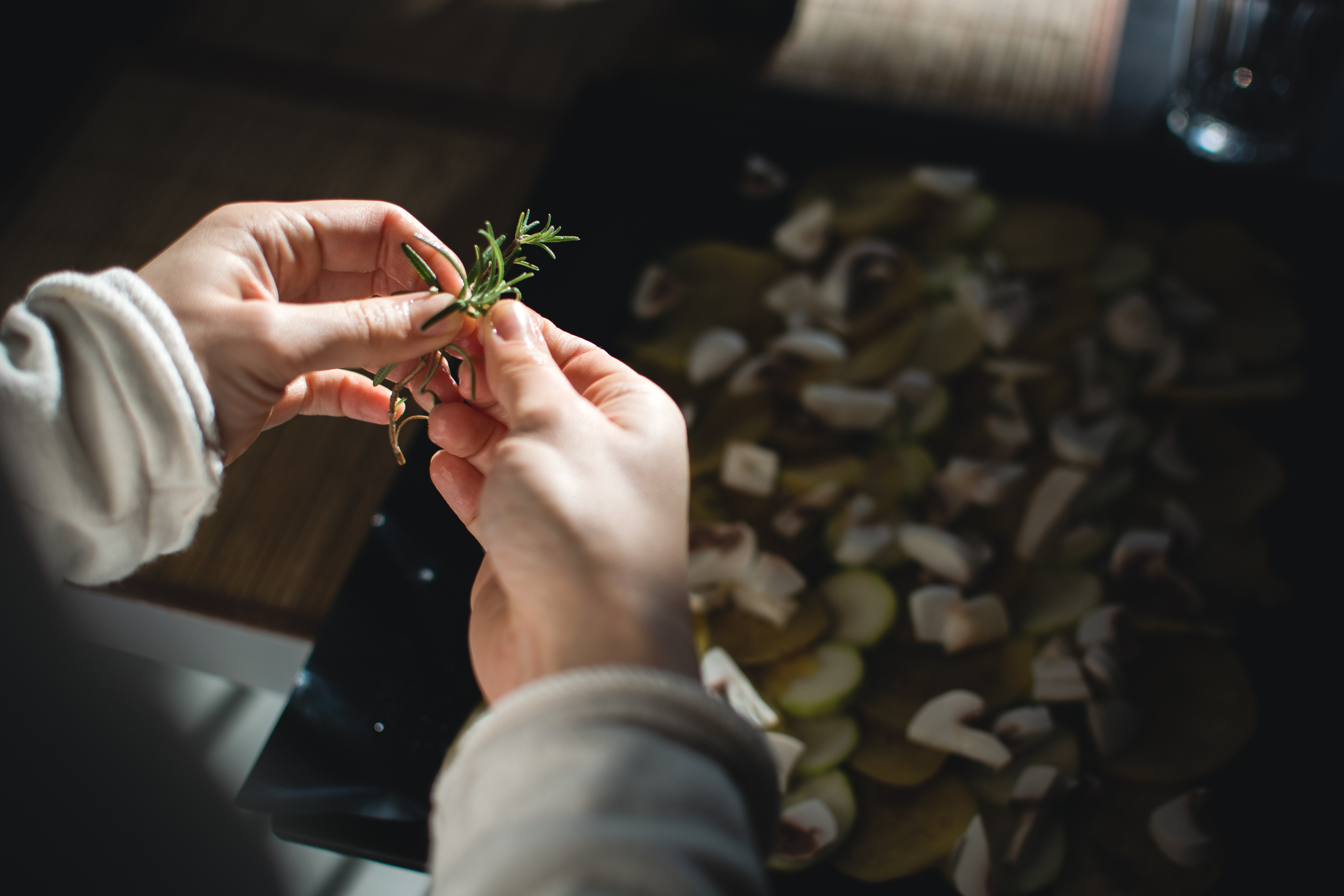Below you can find helpful home-cooking tips for making your cooking seamless. You can also learn about conversions for European to US measurements for further reference.
Separating Egg Whites
Practice using 3 bowls to separate your egg whites. Having a third bowl serves as a intermediary bowl so that if you happen to get egg yolk half way in, you don’t spoil your entire whites. Crack your egg on a flat, hard surface. Keep those egg yolks! I find that freezing them in an ice cube tray is extremely helpful for future recipes or for using the yolks to brown any pastry dough in an egg wash.
1 egg yolk = 1 tablespoon
Beating Egg Whites
First, after having your eggs at room temperature, you must decide if you are going to whip them by hand or by mixer. To make egg whites firm, you will need a pinch of salt and cream of tartar or 1 teaspoon of white wine vinegar. When whipping, be sure not to over-whip or over-beat. If they are holding peaks, they are done. They should be silky and velvety – not flaky. If over-beat, you can rescue the batch by adding another egg white. Make sure you didn’t get any egg yolk in because there is no silver bullet to recover from the mistake.
Egg whites must all be in motion together at once to rise. They should rise to 3 times their size. When choosing a bowl to whisk them in, a copper bowl is ideal but extremely expensive. Go with plastic as a second option as using a glass bowl is the least desirable. Glass bowls do not make good egg white mixtures.
Using Egg Whites
Remember that egg whites and calling for egg whites is to keep your batter – either sweet or savory – to rise and hold. Do not mix or be heavy-handed with your egg whites. The term “fold” is often used in recipes which means you will pour your egg whites to the side of the mixture you are adding them to and gently turn in from the sides — pushing down and pulling up whilst turning your bowl. Fold in from the sides. If you over-mix your batter, your egg whites will deflate. Remember to be slow and careful when folding.
Never add any batter directly into egg whites. It is just the opposite. Egg whites must always be added into your batter to ensure they do not deflate.
Storing Cheese
Store cheese in the refrigerator and remove the store-bought packaging and keep it wrapped tightly in paper, away from air – hard and semi-soft cheese. Cheese is resilient and can last for weeks; should mold begin to form, simply cut it off – do not discard cheese. Before melting cheese and serving cheese for company, bring the cheese up to room temperature (appx 2 hrs).
Using Honey
If you would like to substitute sugar for honey, a tip is to replace half the sugar that the recipe calls for with honey. For example, 1 cup sugar would be 1/2 cup honey since honey is higher in sugars than actual sugar. Store honey in a cool, dark place. Should crystals form, place the jar in a warm cup of water — do not bring to a boil as the heat would break down the health benefits of natural honey. Try to locate and buy honey from a local provider.
Clarified Butter
Create clarified butter by placing unsalted butter into a sauce pan and over low heat. As it begins to separate, avoid stirring as you are waiting for the butter to split. Once you begin to see the foam form and separate from the butter, skim off and discard. Which floated to the bottom of the pan is your clarified butter.
Storing Knives
Knives are a cook’s hands. Invest in a butcher’s knife block — avoid place knives in the dishwasher, in drawers in bulk, or in the sink as the constant bumping against other objects will only dull your edge.
Herbs and Spices
Herbs and spices should be stored in a cool, humid-free, and dark place in your pantry. Their shelf life is up to a year and following should be discarded as their flavor will loosen. Do not store near a stove. Keep away from both extreme heats and cools. If possible, try to use a grinder for fresh taste or mortar and pestle for fresh grinding. With pepper, if your recipe is light in color, substitute black pepper for white pepper.
Other Tips
- Microwave a lemon for 15 seconds before squeezing juicing to increase the yield.
- Add EVOO and spices to an almost empty mustard jar and make your own salad dressing. Reminder that the EVOO should have a 3:1 ratio — 3 parts oil 1 part vinegar, for example.
- To keep cauliflower from blanching in color, add milk to the water to retain whiteness.
- Let poultry, roasts and other meats rest before carving; if you cut immediately after cooking, you will lose all the tasty juices inside the meat. Resist immediate carving.
- To get the perfectly-shaped hardboiled egg, use “old” eggs. New eggs stick to the shell making it more difficult and more likely that the membrane will stick to your shell thus creating an uneven shape.
- Cook and boil with room temperature eggs for best results.
- Soft-boiled eggs take exactly 6 minutes.
- To hard boil an egg, place eggs in a sauce pan in cold water and apply to heat. Bring the eggs to a boil and reduce to heat to low. After 11 minutes for a large egg, remove from heat and run under a cold faucet and let rest in cool water.
- To remove unwanted smells like onion from your hands after chopping, wash your hands with salt – this will exfoliate the cells and remove the undesired scents.
- Store egg yolks in an ice cub container and freeze for future use – 1 egg yolk = 1 tbsp.
- Keep your meats stored in your fridge on the lowest level to prevent food contamination and bacteria growth from any raw juices.
- When cooking pasta, salt the water – do not use oil.
- If boiling meats, like chicken, save the water to make future stock by adding onion or shallot, carrots, and celery/celery leaves, bay leaf, salt & pepper. Freeze stock or use within 2 days.
- To brown vegetables or meat requires not overcrowding your pan. Sauté in batches, if necessary.
- If serving warm food, try to go the extra mile by serving on a warm plate. Cold plates only distract and take away from a hard-cooked warm meal.
- Add a lemon or discarded lemon bits to your dishwasher to keep a fresh smell.
- Learn how to truss: an important skill with poultry and presentation while keeping flavor inside the cavity.


